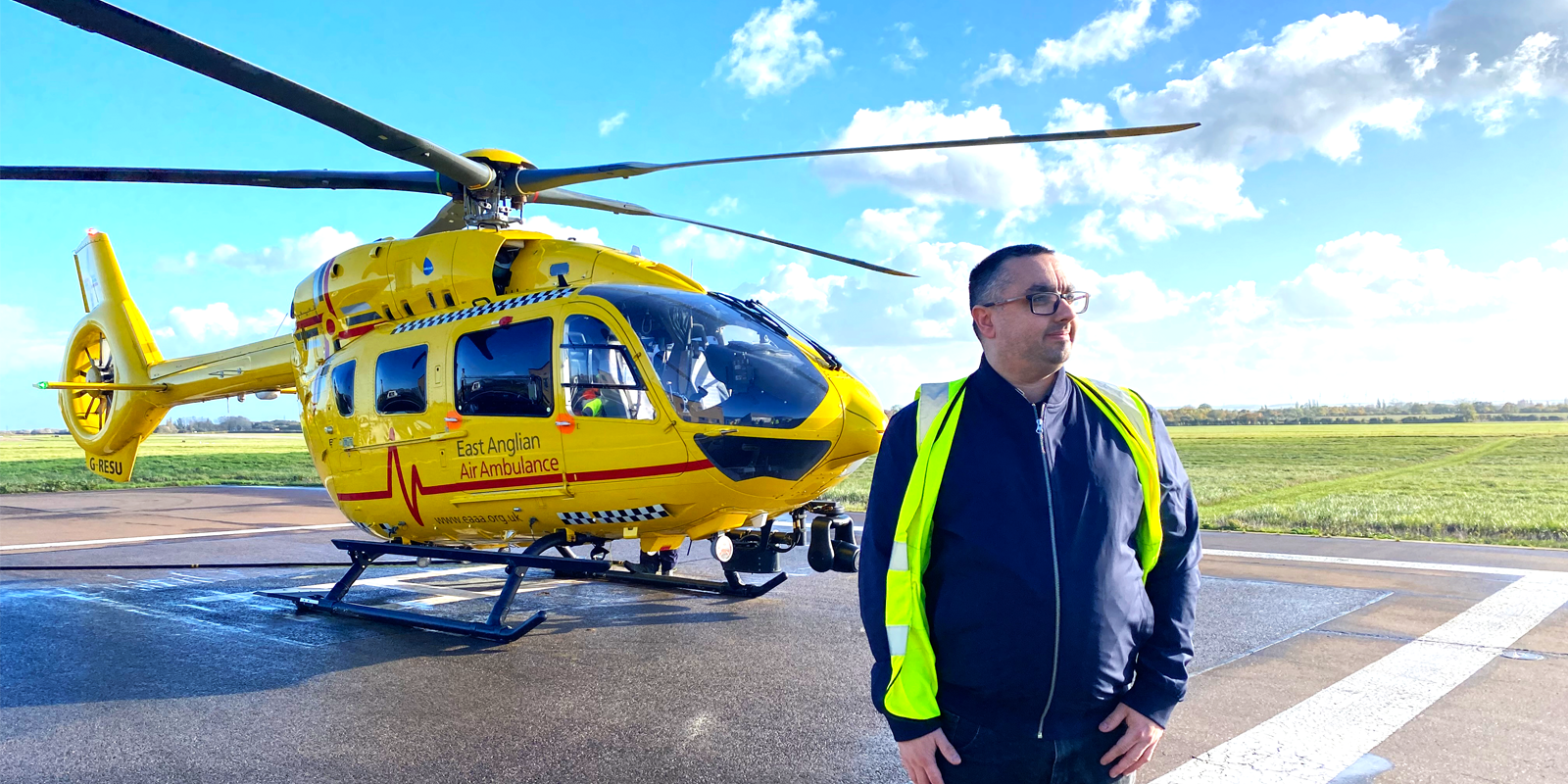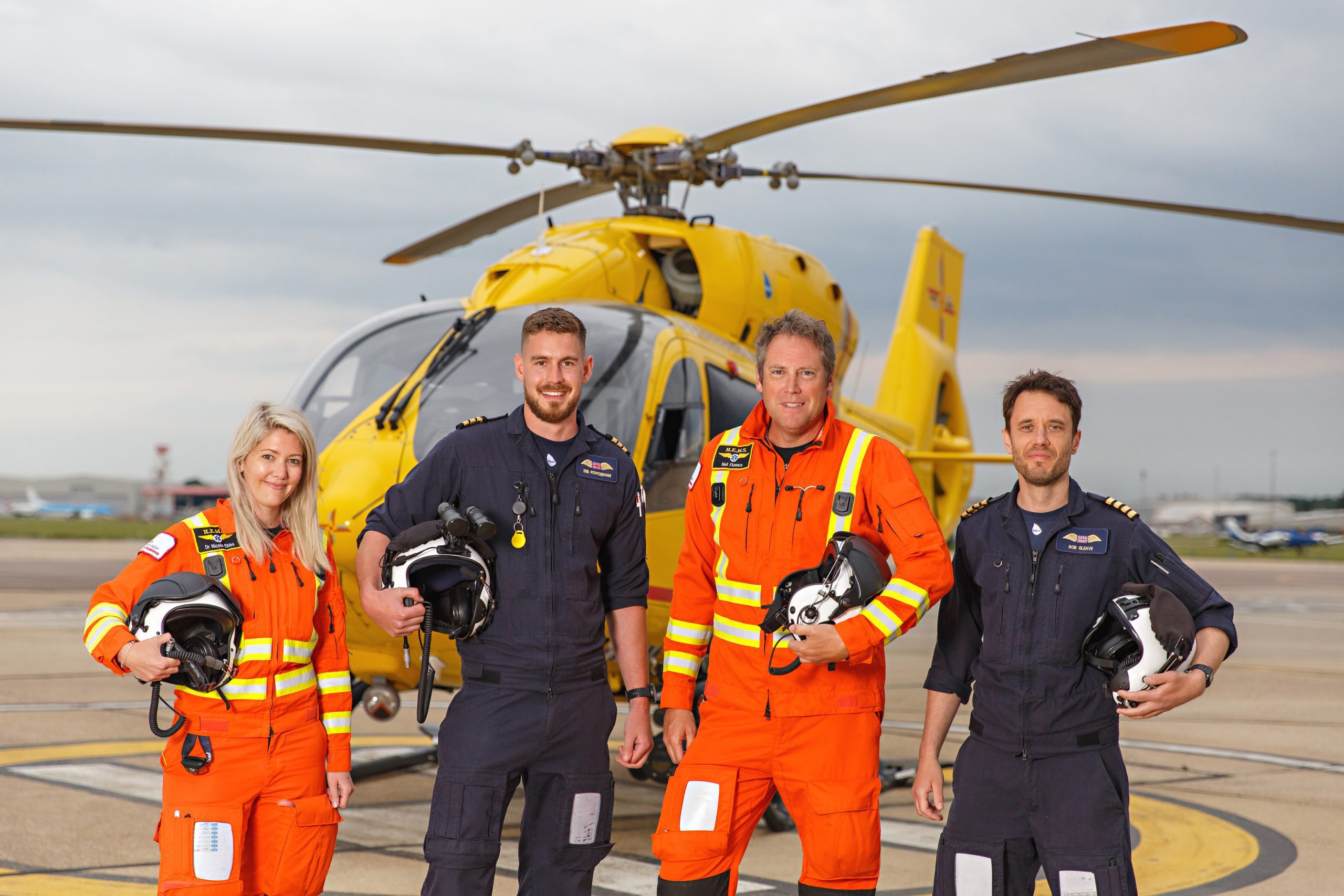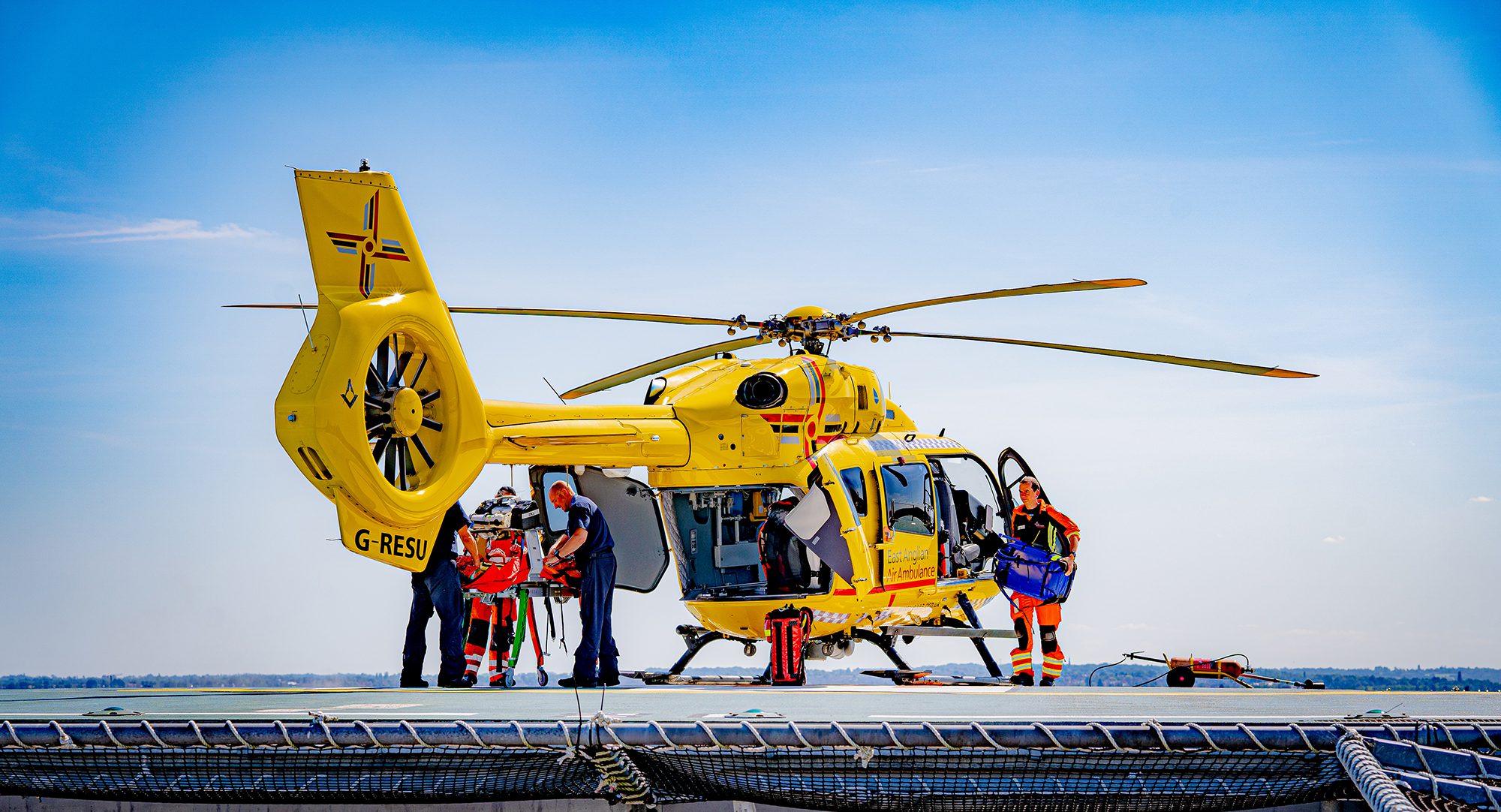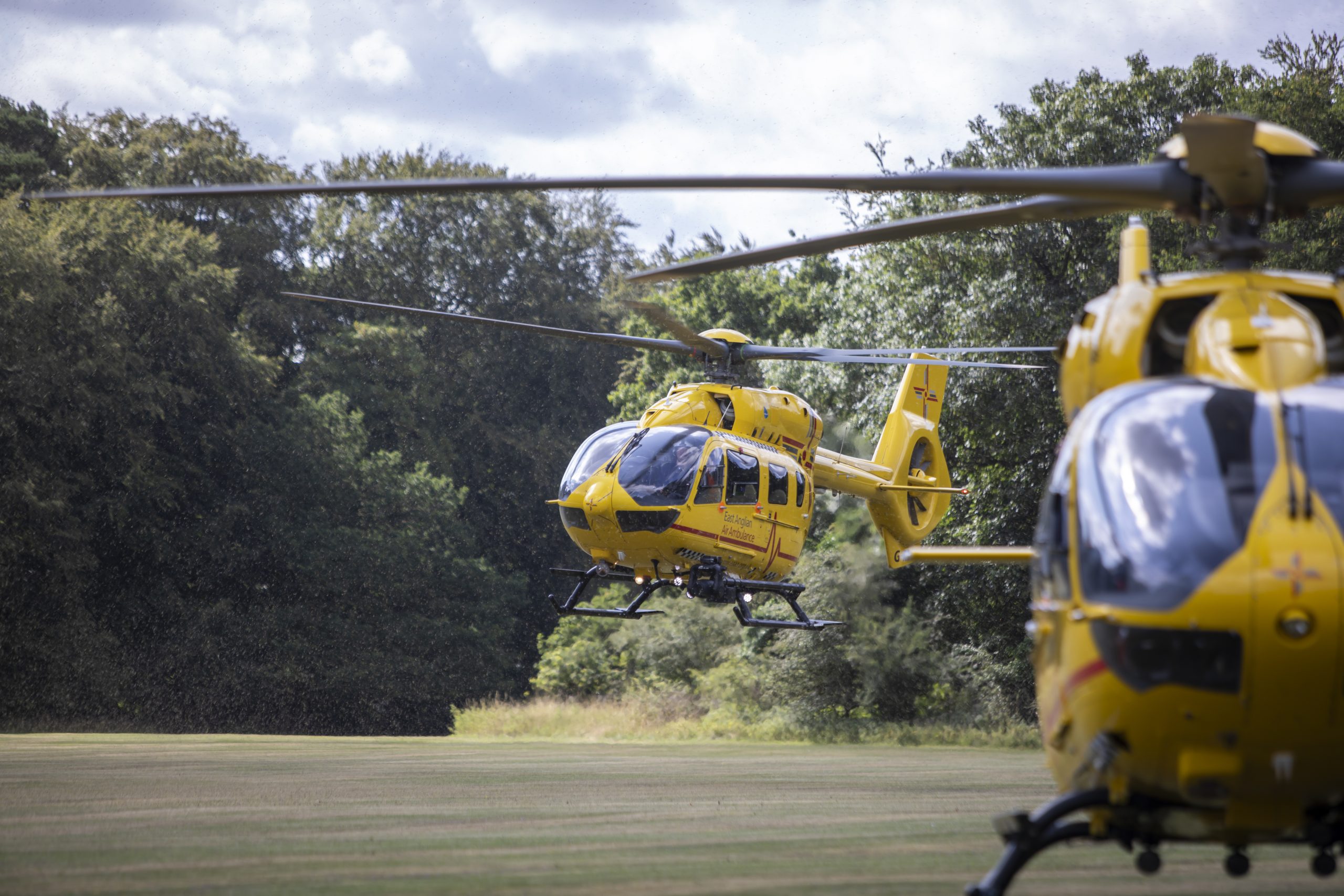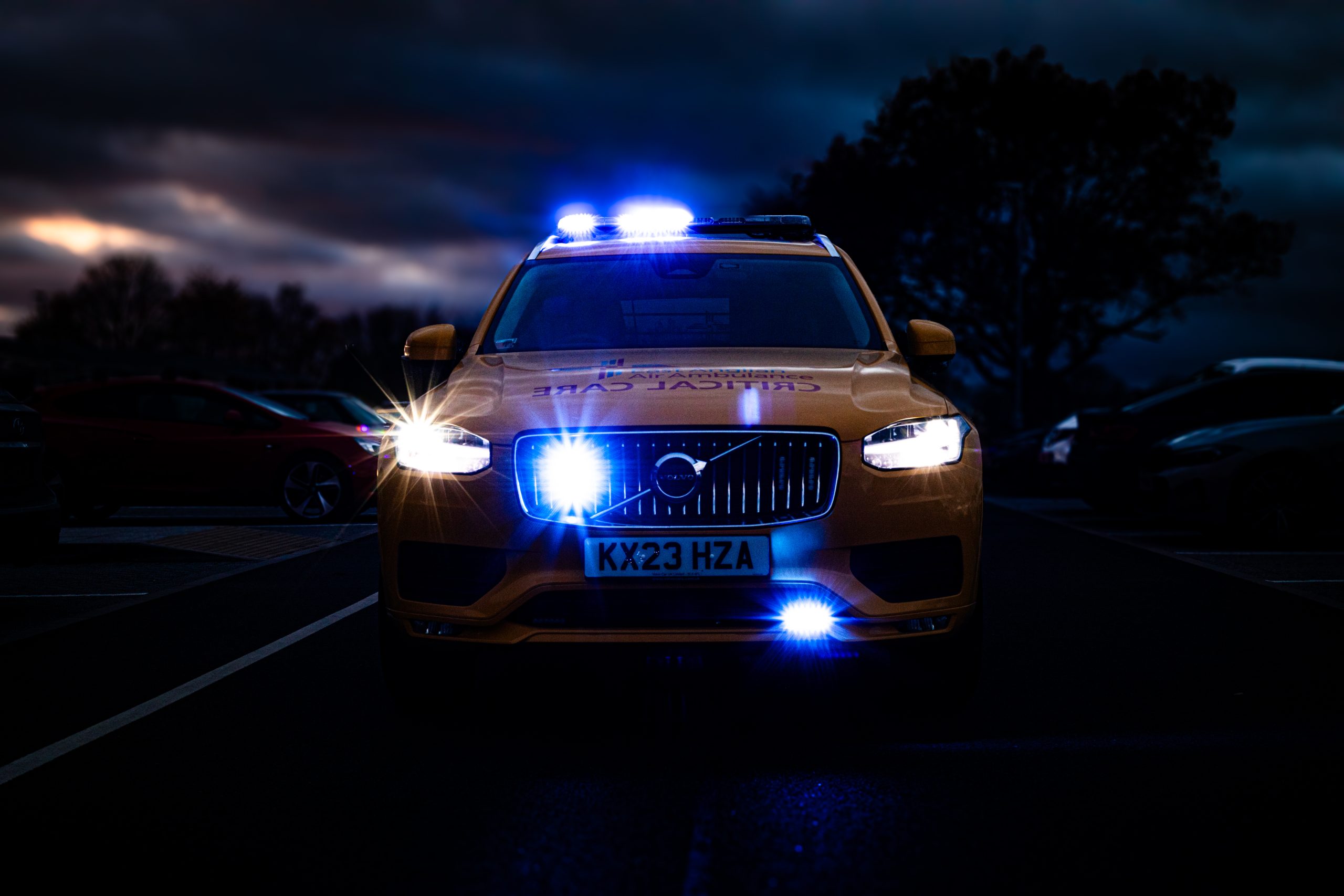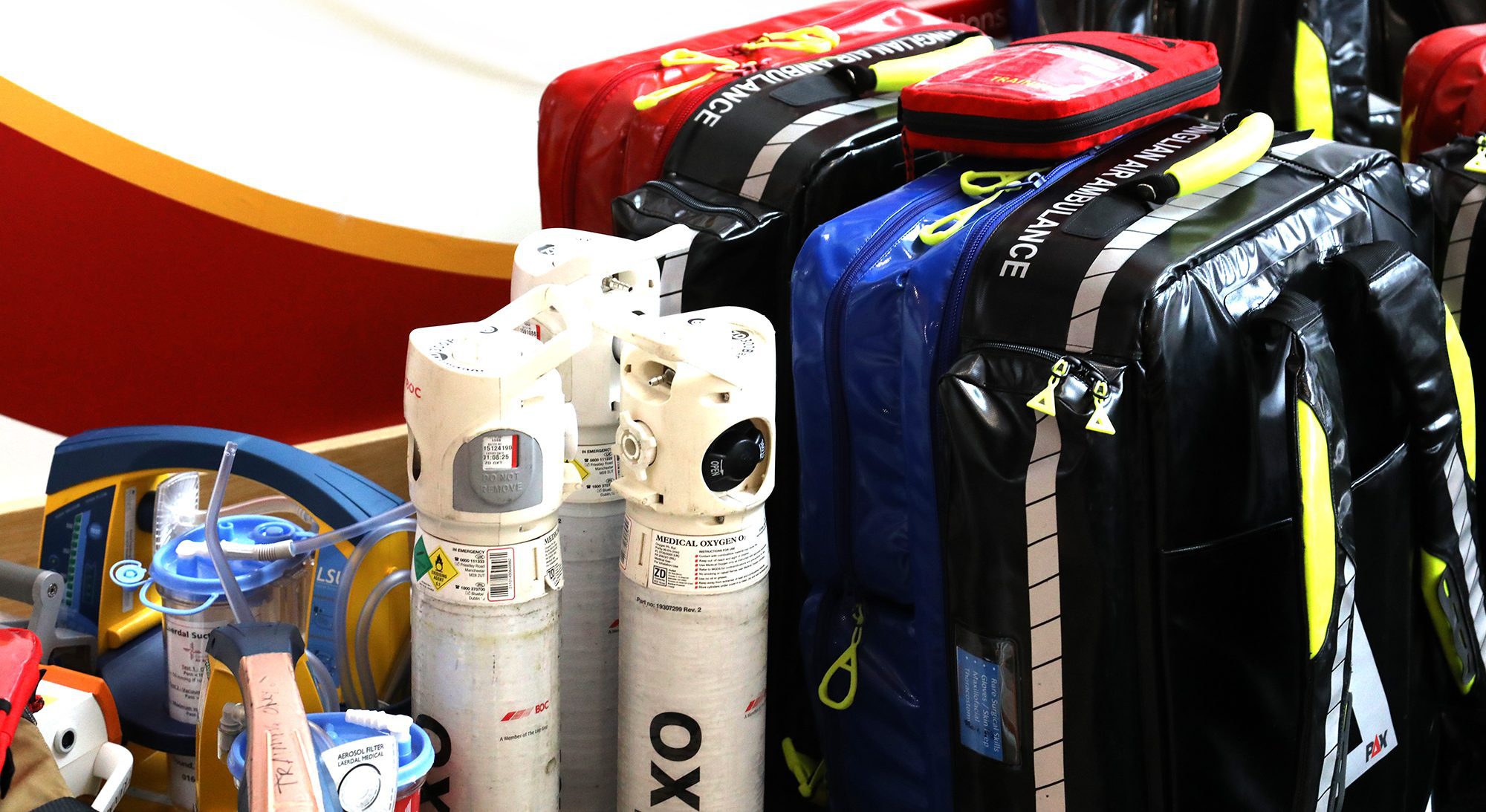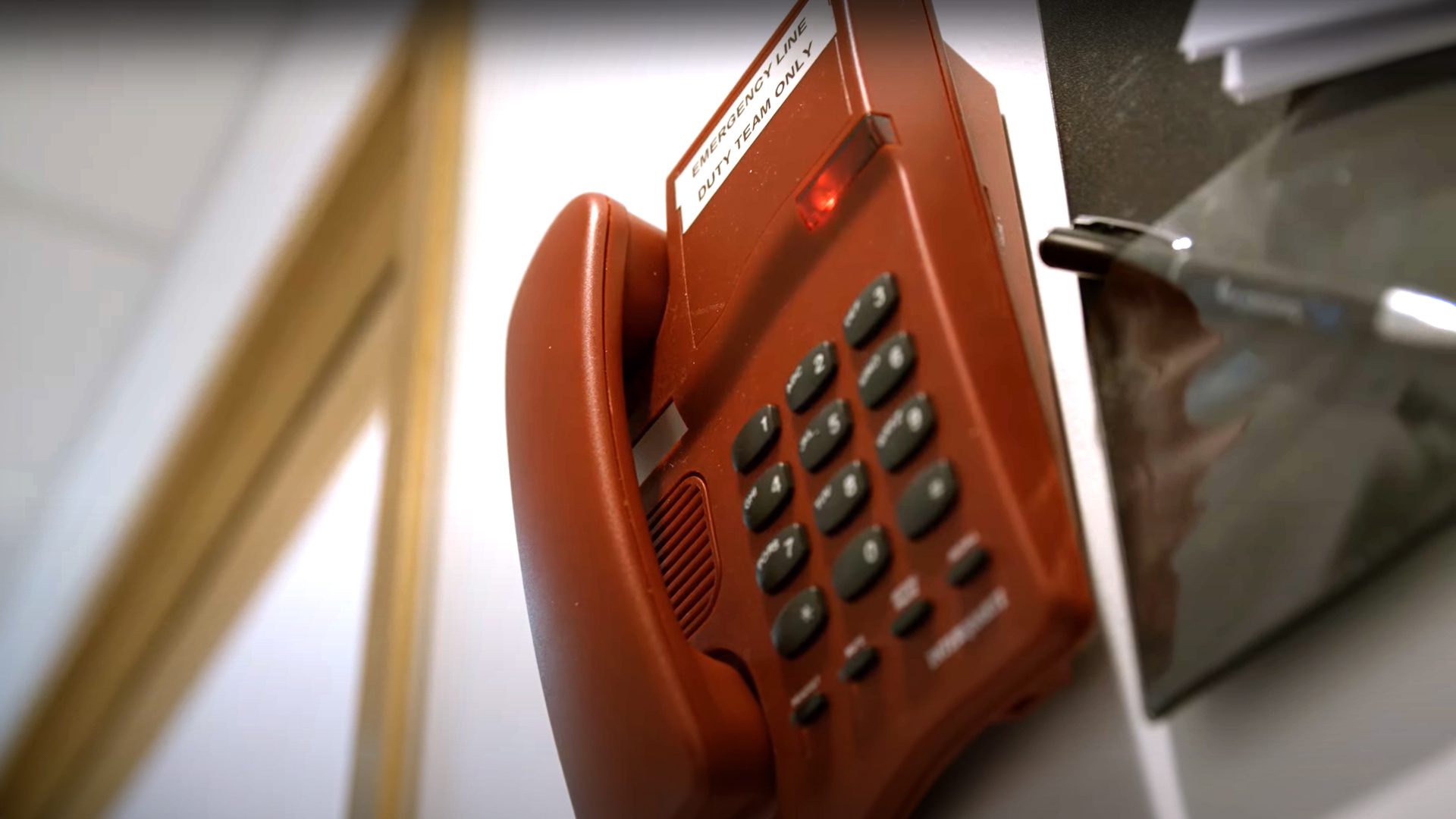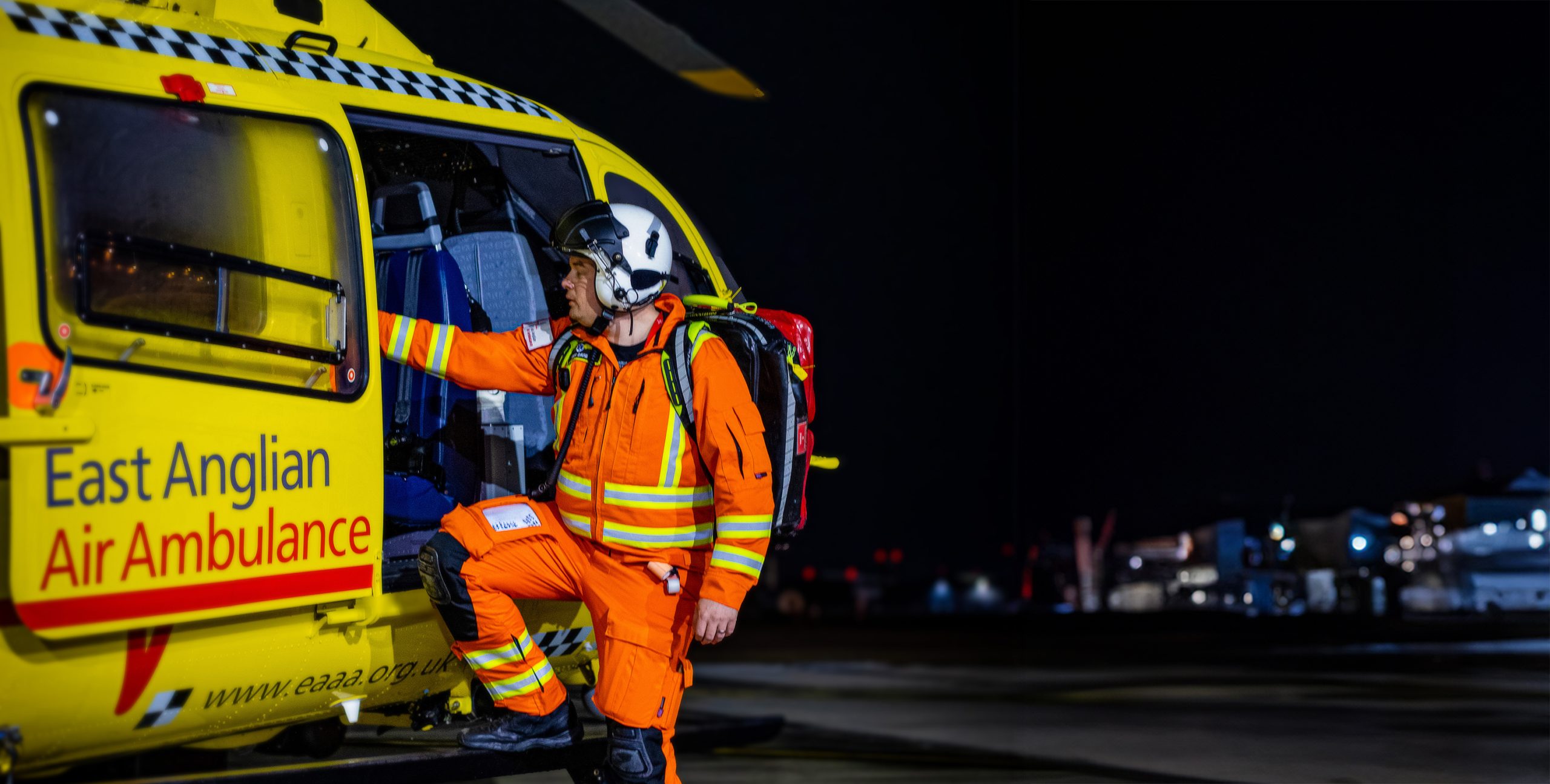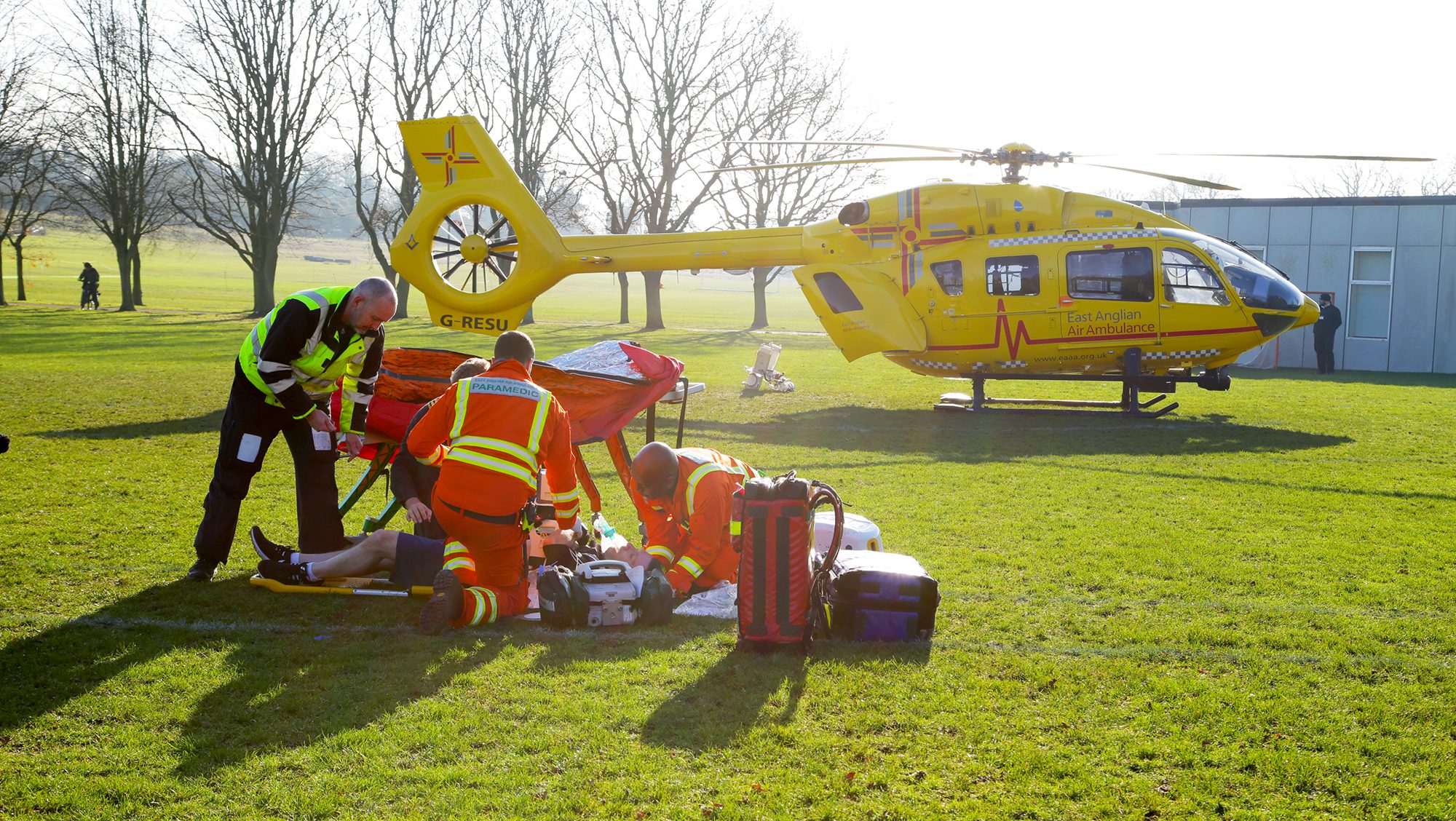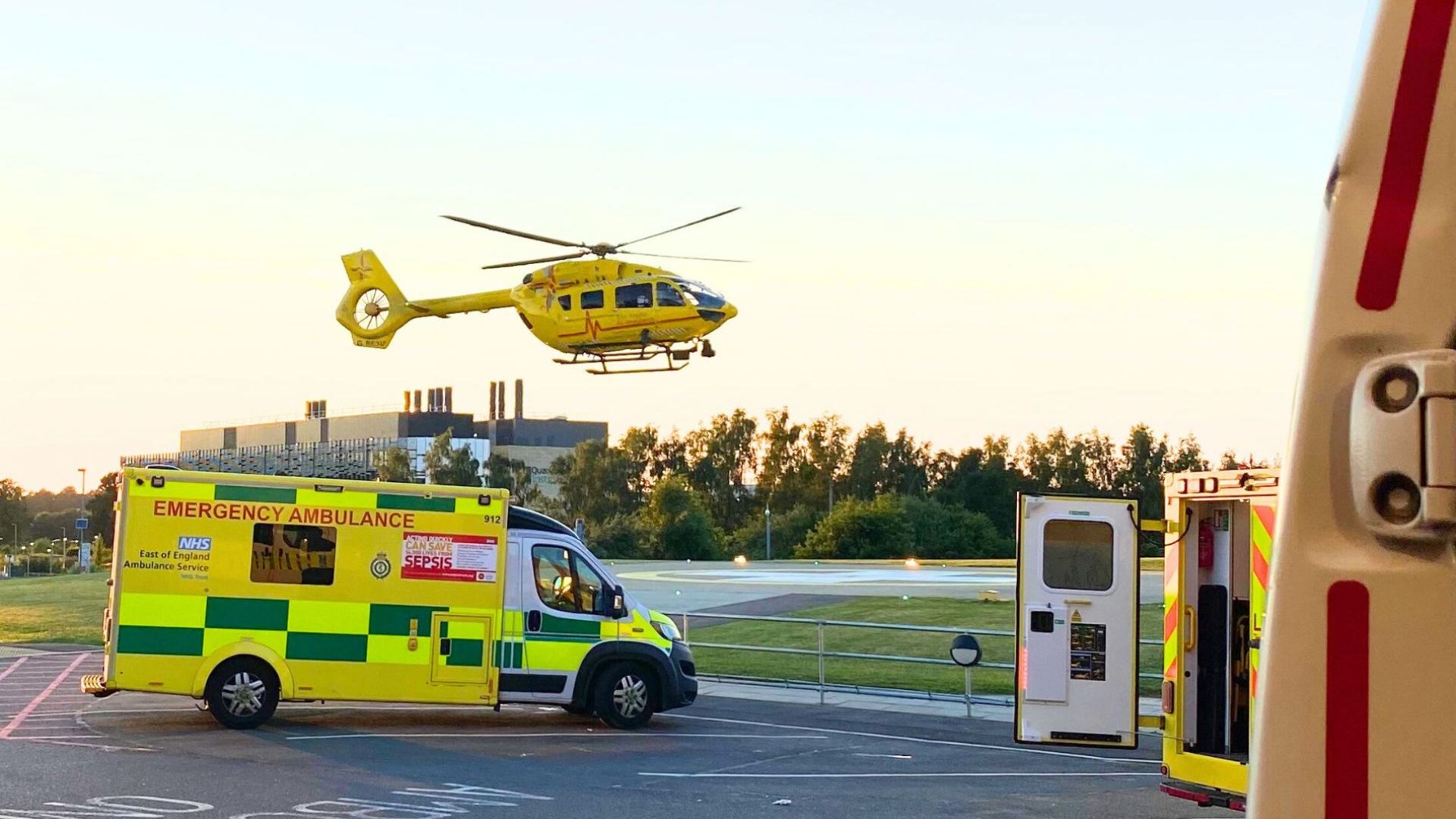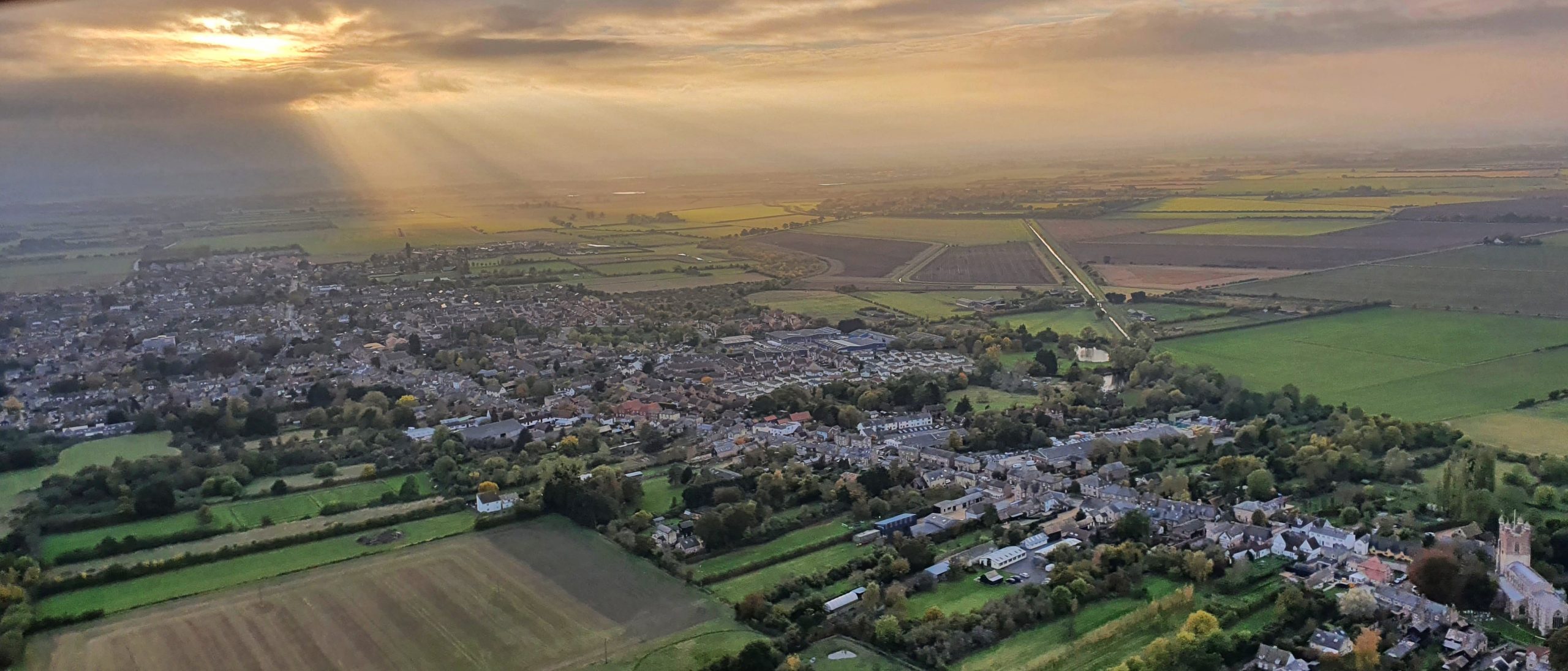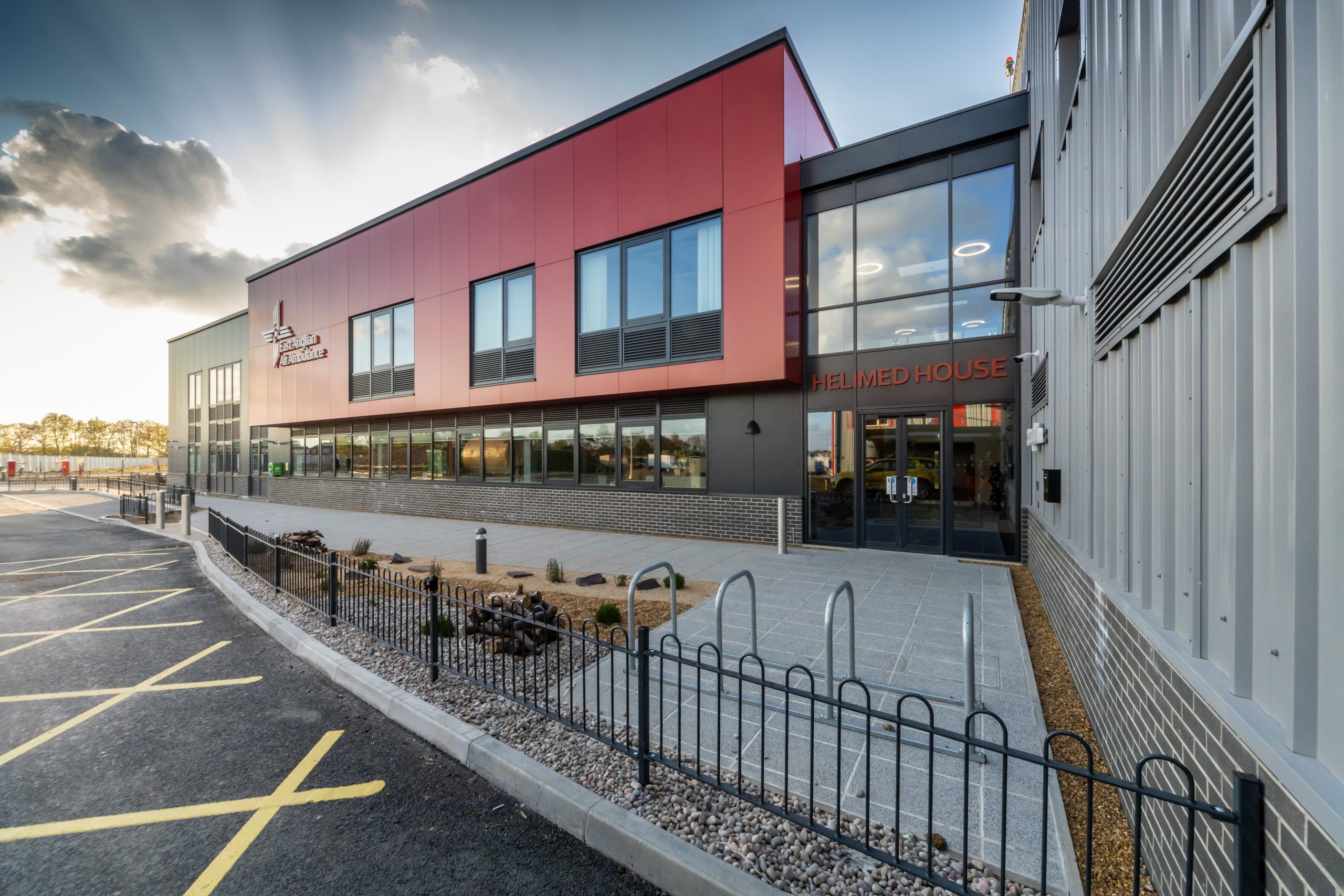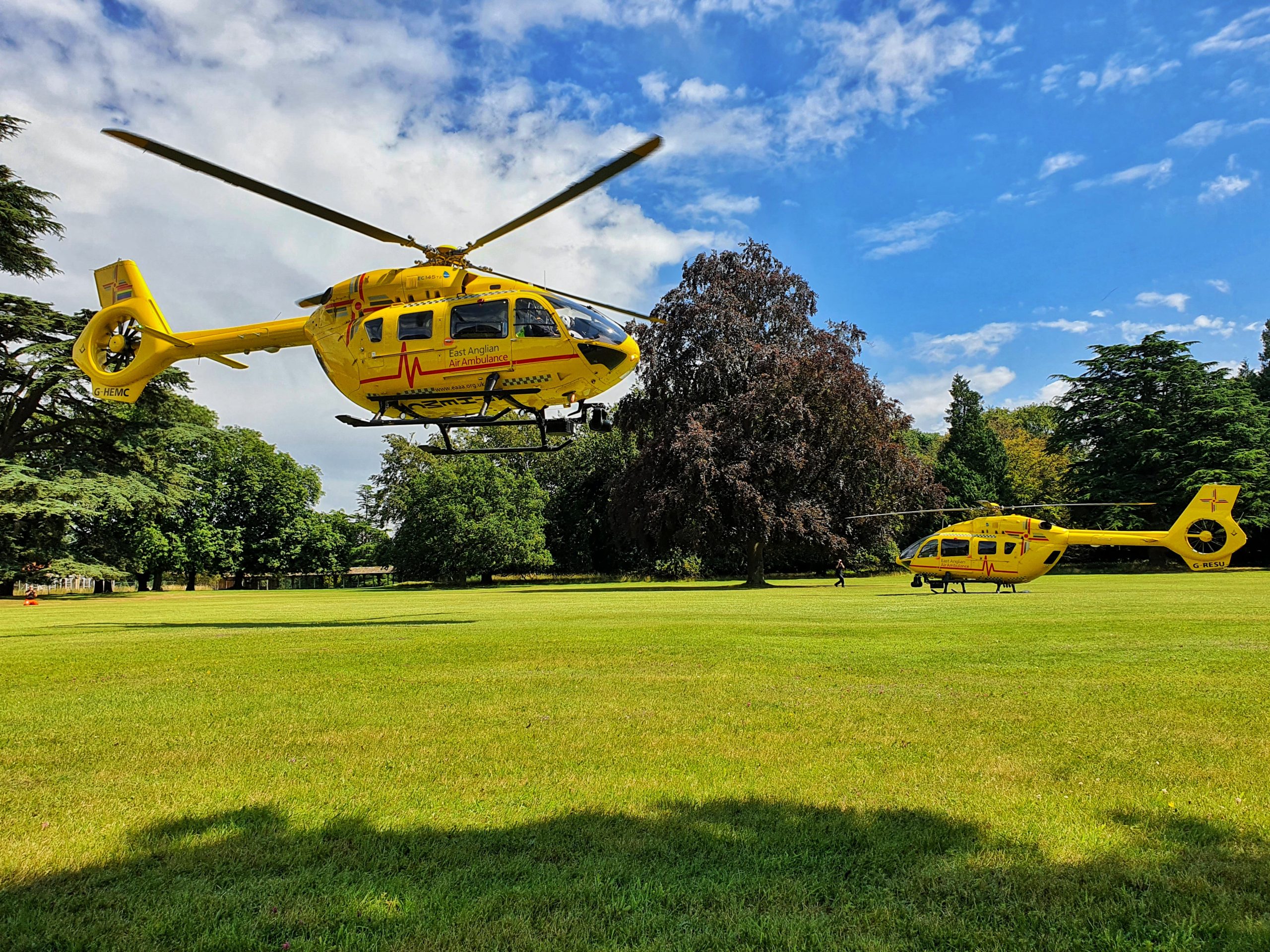Saving lives 24/7
East Anglian Air Ambulance (EAAA) is a charity providing life-saving critical care 24 hours-a-day, 365 days-a-year by air and road. From road traffic collisions to cardiac arrests to medical emergencies, our specialist doctors, critical care paramedics and pilots bring the advanced skills, equipment and medicine directly to you or your family, in the fastest time possible.
We are committed to delivering outstanding care, quality, and value to the community. We thrive on challenges, looking for innovative ways to grow and improve the service further through an open culture of continuous improvement, by scrutinising our actions, sharing knowledge, and learning from past events.
Our motivation comes from a determination and a passion to provide the best possible outcomes to our patients.
£4,250
COST OF A TASKING
6
PATIENTS TREATED
EACH DAY
39,000
TOTAL INCIDENTS ATTENDED
5,000
SQ. MILES COVERED
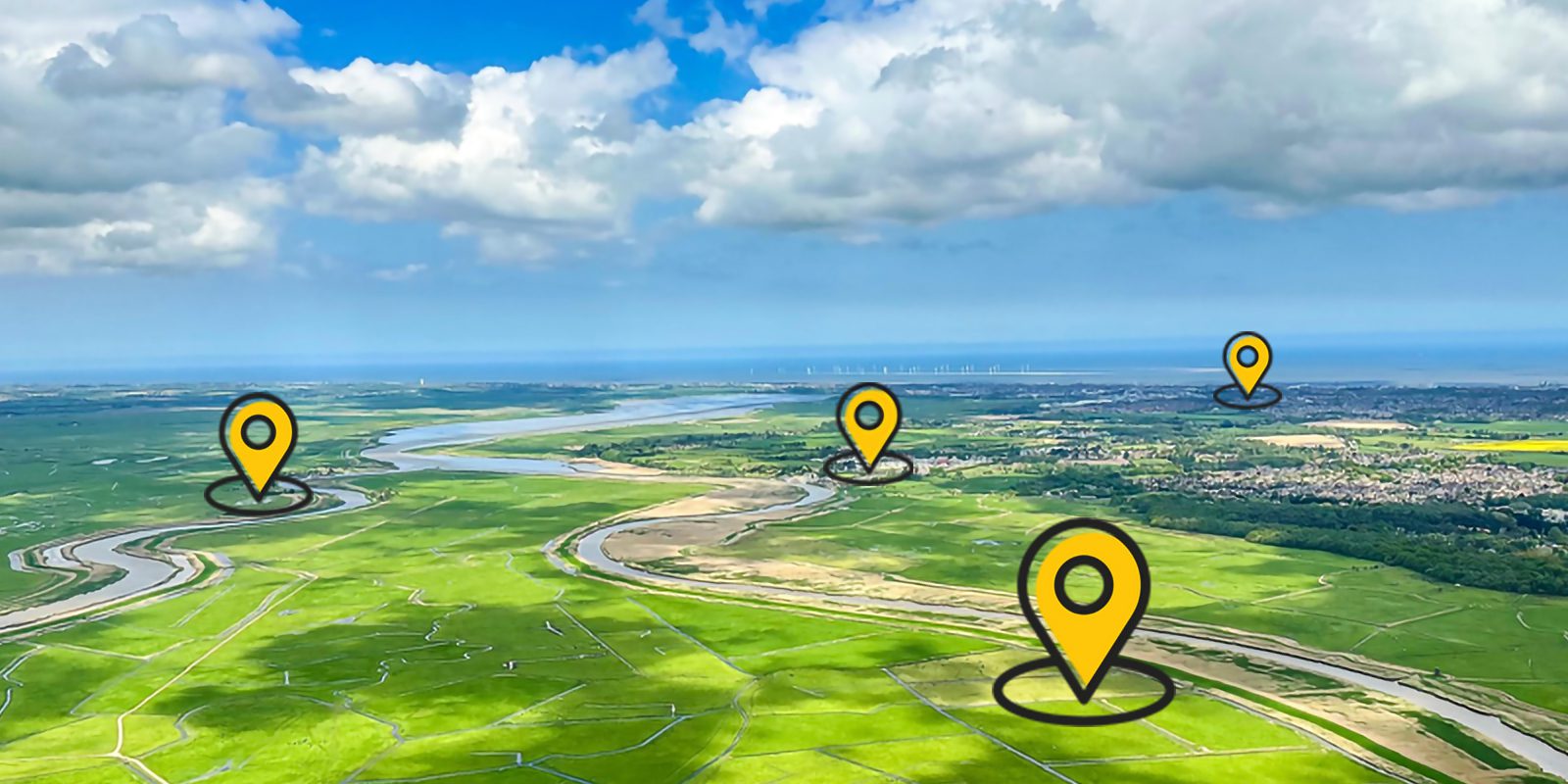
Latest incidents
From bases in Norwich and Cambridge, EAAA critical care crews are tasked to people in urgent need of out of hospital treatment and care, over and above what the ambulance service can provide. On average, the crews are tasked to eight medical emergencies and treat five patients each day.
